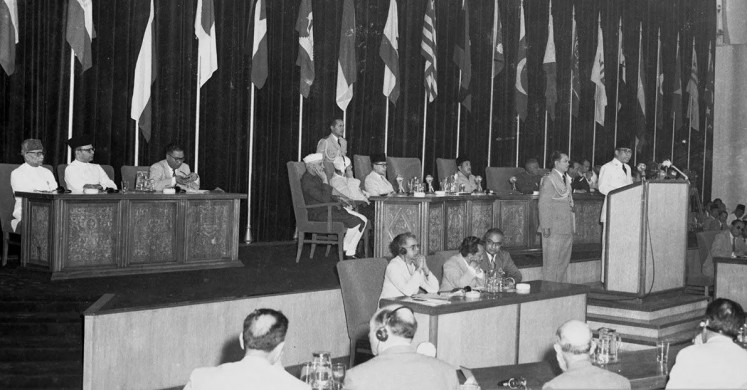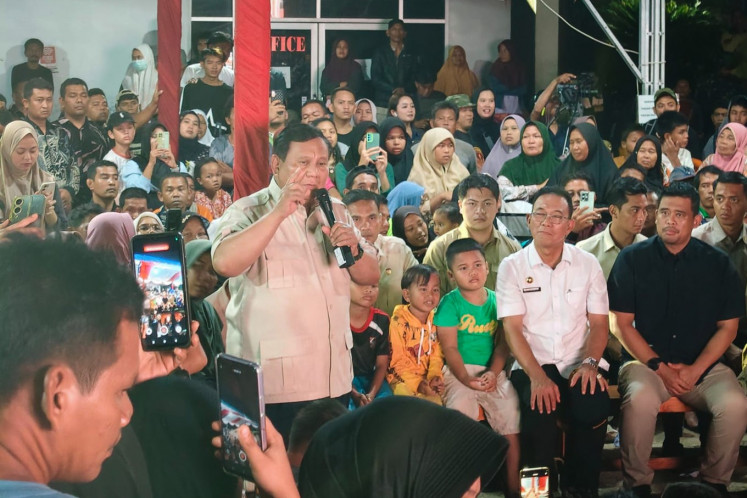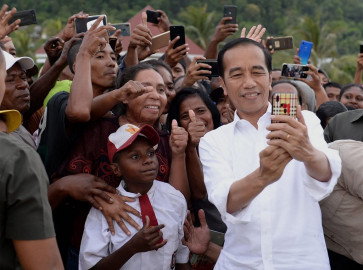Popular Reads
Top Results
Can't find what you're looking for?
View all search resultsPopular Reads
Top Results
Can't find what you're looking for?
View all search resultsPolitics of denial and the greater need for elected leaders’ accountability
Studies show that in some countries, rulers often use the label of fake news and denial to suppress critical voices and cover up their weaknesses.
Change text size
Gift Premium Articles
to Anyone

The public has been enthusiastic in watching the presidential and vice presidential debates to discover the candidates’ visions and missions, which are filled with bold promises. Candidates vow sweeping reforms, transformative policies and grand visions for the future.
Although delivering the vision and mission through debates and campaigns is an important stage in the political process, there is an anomaly in Indonesian democracy where the public seems to be struck by “amnesia”.
This points to a deeper problem: a lack of, or weak, accountability for elected leaders to follow through on their campaign promises to their constituents. In other words, political pledges are often forgotten once the election ends. There is no binding "political contract" in Indonesia between leaders and voters; politicians use elections to gain power with little concern for the people's interests.
In reality, people's criticism of “failed” government policies, which become public dogma and are often reported through social and print media or go viral, is often considered fake news or false information. The hope is that if there is a claim from the government that the news is fake, the public will reduce their trust in the news. It is still rare to find efforts by the establishment to verify information about news that reflects badly on them and to satisfy the public interest.
Conceptually, the government's behavior of denying criticism in the news or information is called politics of denial. Denial can be as simple as refusing to accept that someone else is speaking truthfully. Denial can be as unfathomable as the multiple ways we avoid acknowledging our (the government's) weaknesses and secret desires (Kahn-Haris, 2018), such as corruption and 'wrong' policies.
This denial avoids responsibility and maintains a facade of competence while critical issues fester.

Studies show that in some countries, rulers often use the label of fake news and denial to suppress critical voices and cover up their weaknesses (Wang & Huang, 2020). This is a serious threat to freedom of speech and the press. In this case, the role of the media is significant in influencing the government's image, where journalists are frequently threatened for writing news that contains the truth but is considered to discredit the government's performance.


















